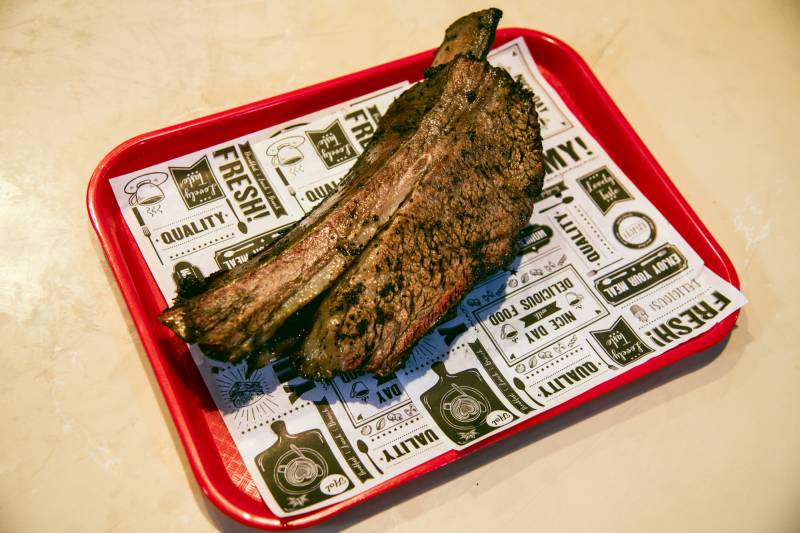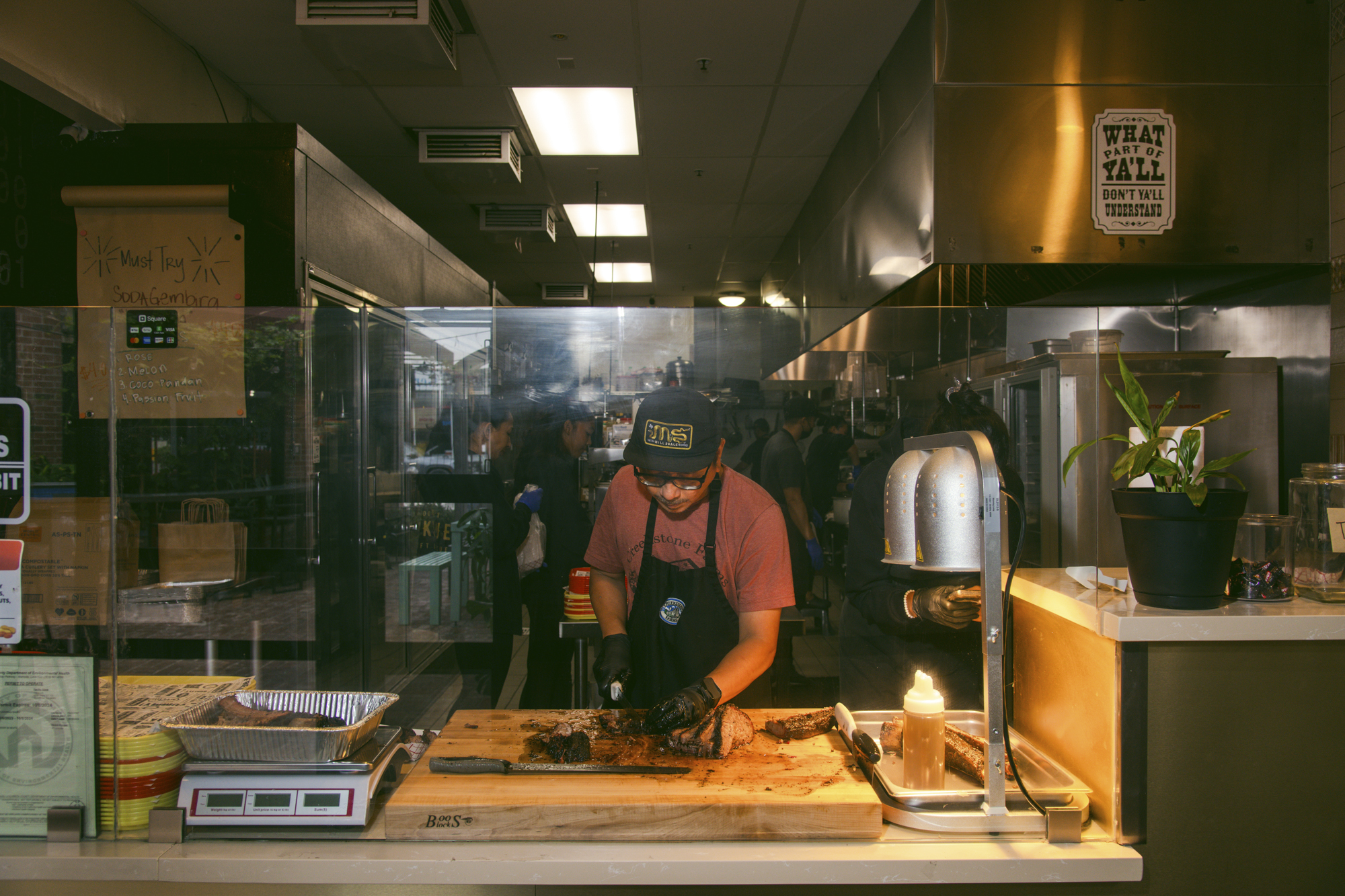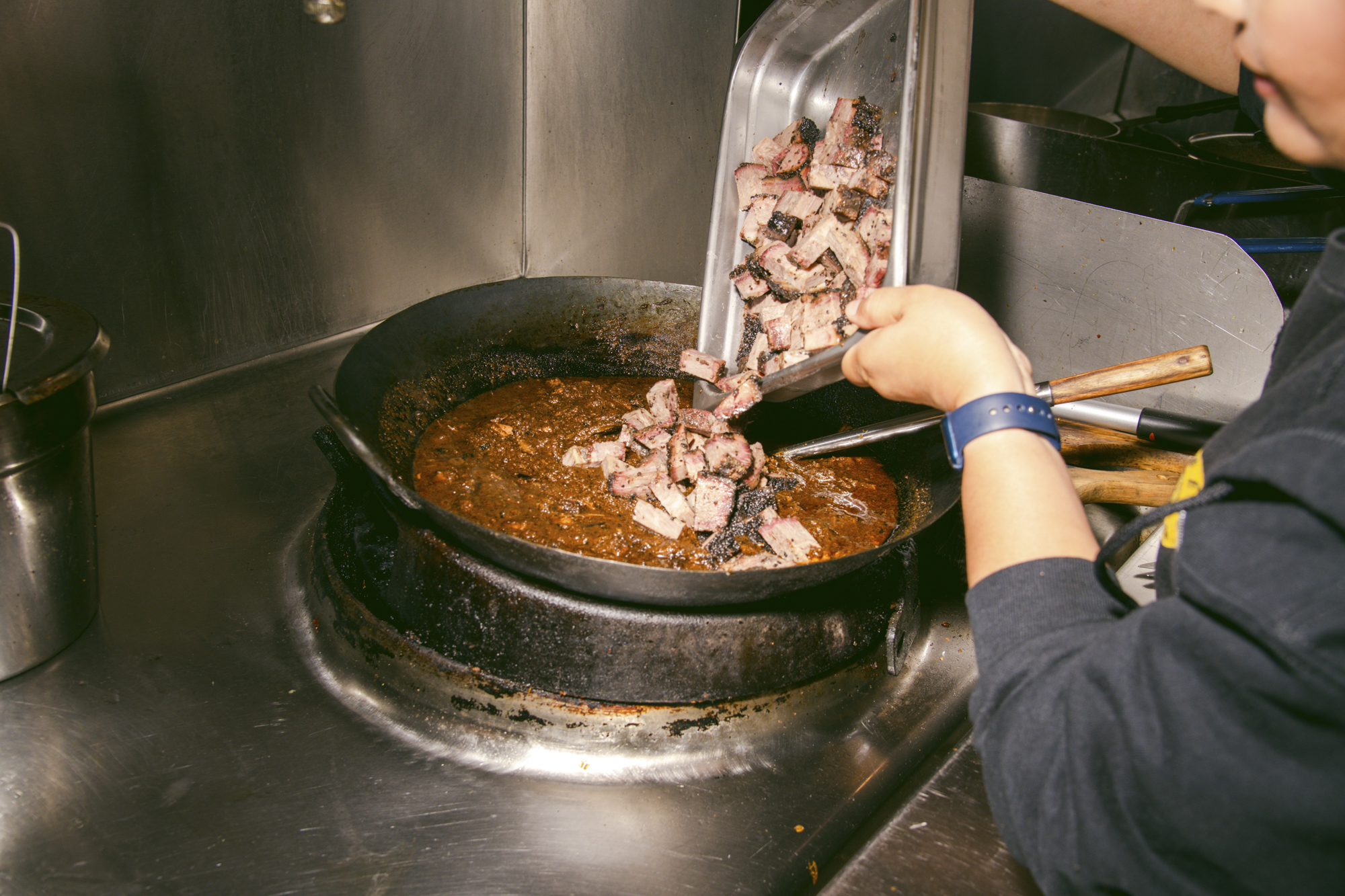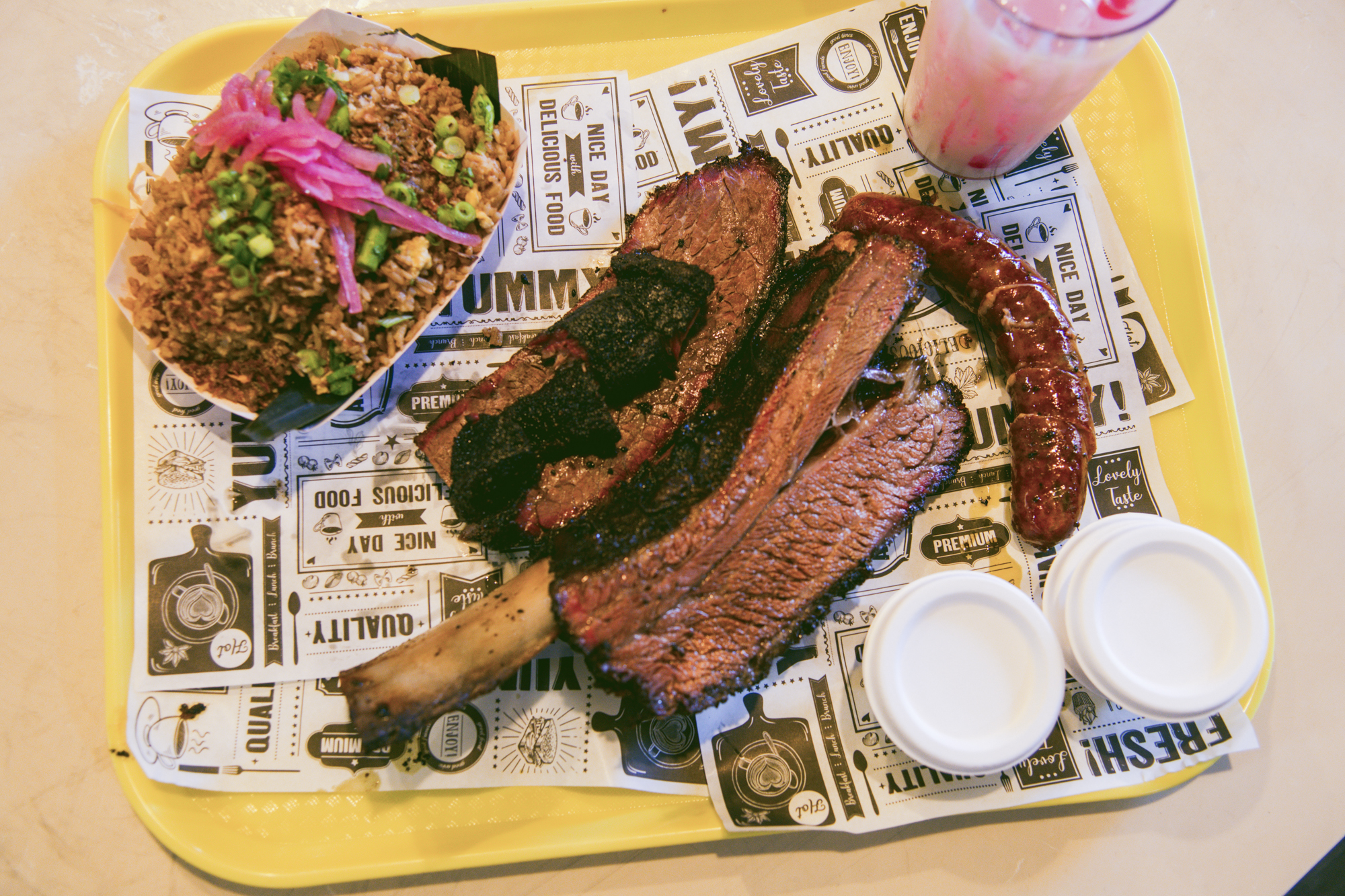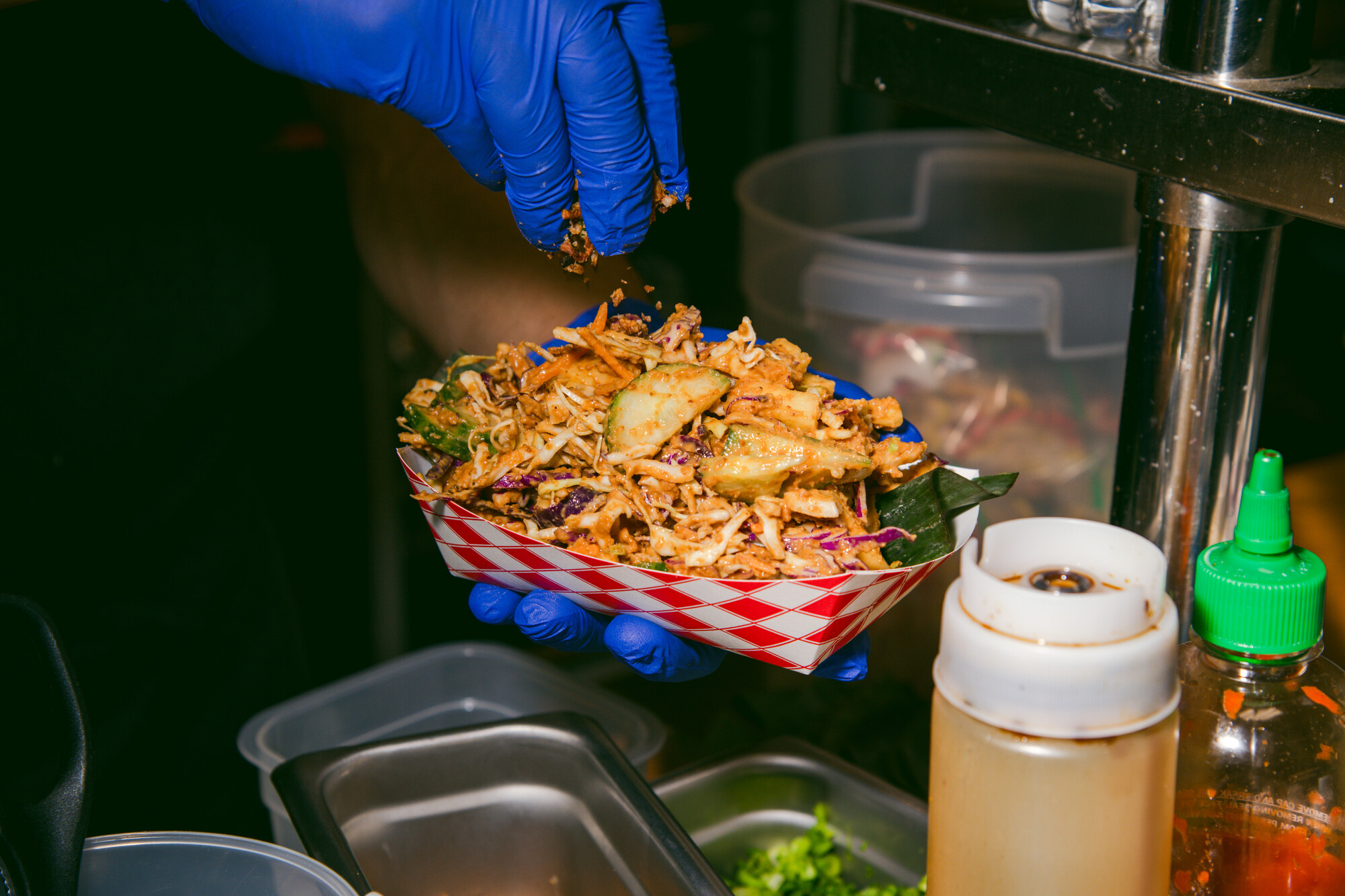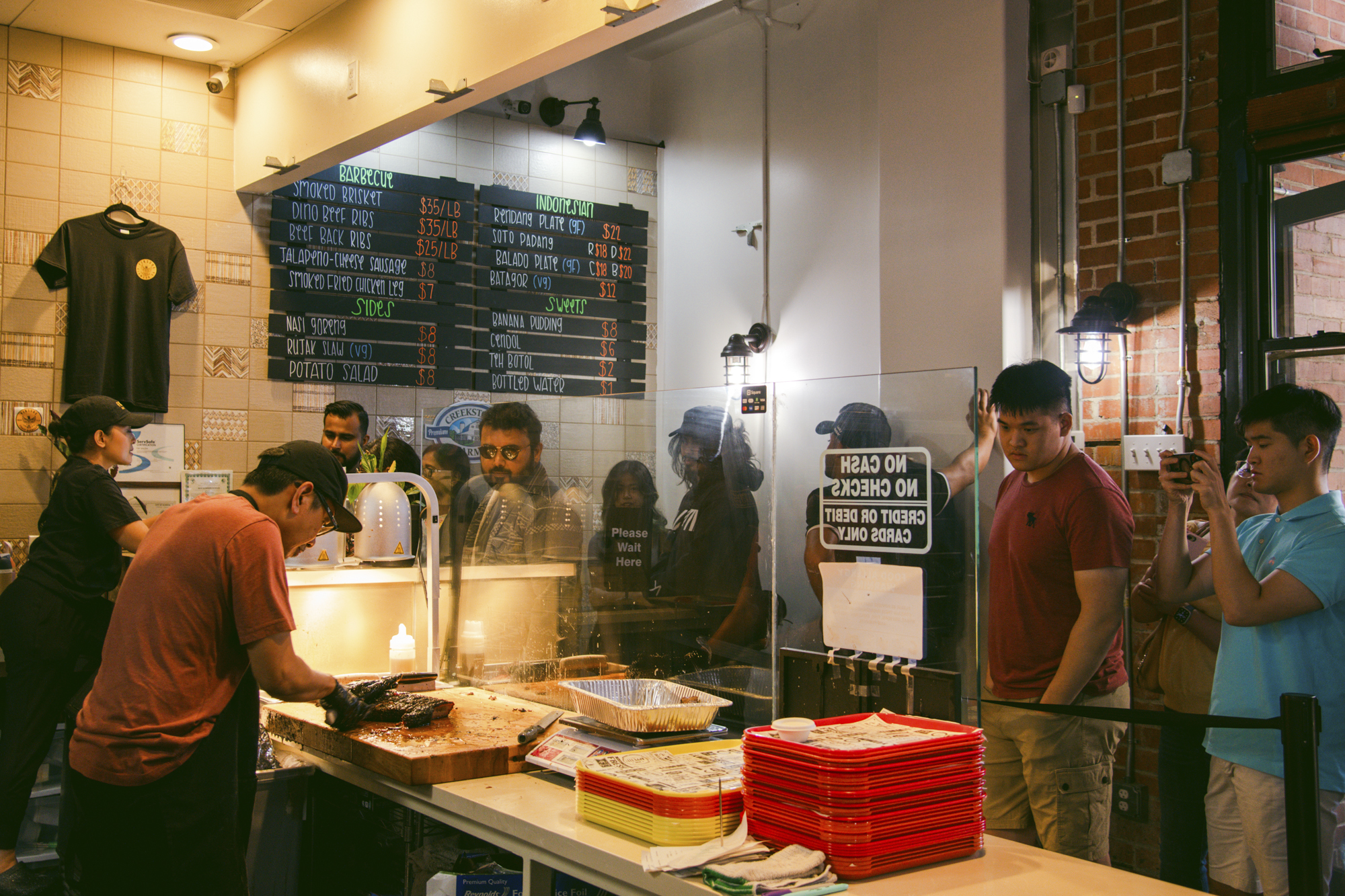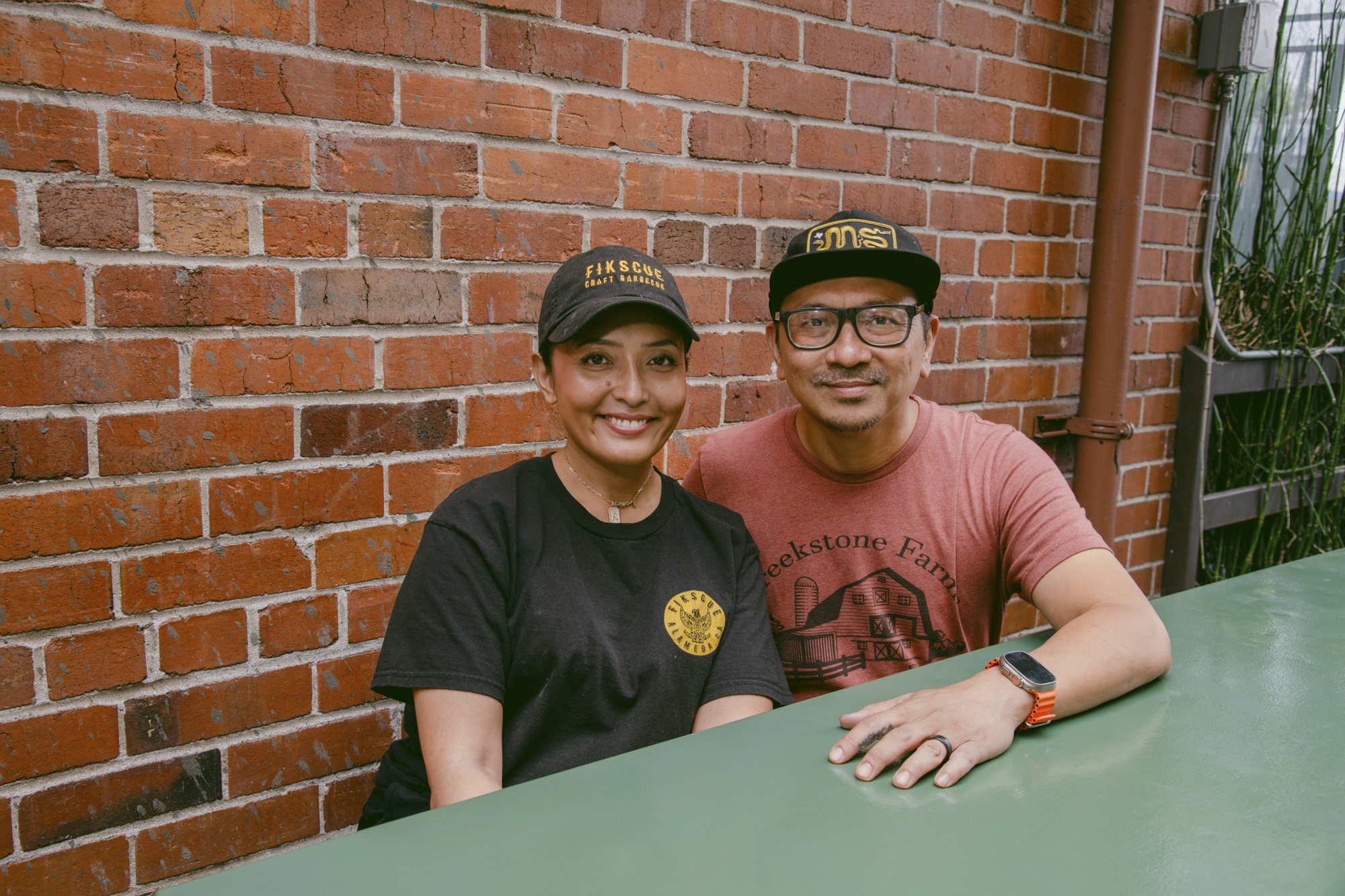B
efore I visited Fikscue, I had never eaten Texas barbecue in combination with homestyle Indonesian food — thick, jiggly slices of smoked brisket paired with a peanut-sauce slaw, or bites of a prehistoric-sized beef rib interspersed with fragrant nasi goreng fried rice. But by the time I’d finished my lunch, I was convinced this was just about the most ingenious act of culinary fusion anyone had ever concocted.
Clearly, I’m not the only one. At around 11:30 on a recent Sunday morning, a half hour before Fikscue’s tiny Alameda storefront opened for business, the queue along Park Street already stretched most of the way down the block. It’s been like this ever since husband-and-wife owners Fik and Reka Saleh opened their brick-and-mortar spot this past November. The restaurant is only open on Saturdays and Sundays, and just for lunch. By 3:30, they’re completely sold out — and even earlier for hot-ticket items like the dino ribs and beef back ribs.
Given how delicious the barbecue is — and it’s as good as any I’ve tasted in Northern California — it’s remarkable that Fik, the restaurant’s pitmaster and namesake, only started honing his craft about six years ago, after a life-changing trip to the barbecue heartlands of Austin, Texas. He taught himself how to smoke brisket by watching Aaron Franklin videos on YouTube and began making it at home for friends and family in a backyard offset smoker. He’d nerd out over barbecue minutiae, developing a fondness for the “mohawk” of the brisket — a part most pitmasters trimmed off that made for the best burnt ends, he discovered.
He got good, too. Good enough that when he lost his day job at the start of the pandemic, he asked himself, “Why not?” He started selling brisket via Instagram under the name Fikscue in June of 2020.
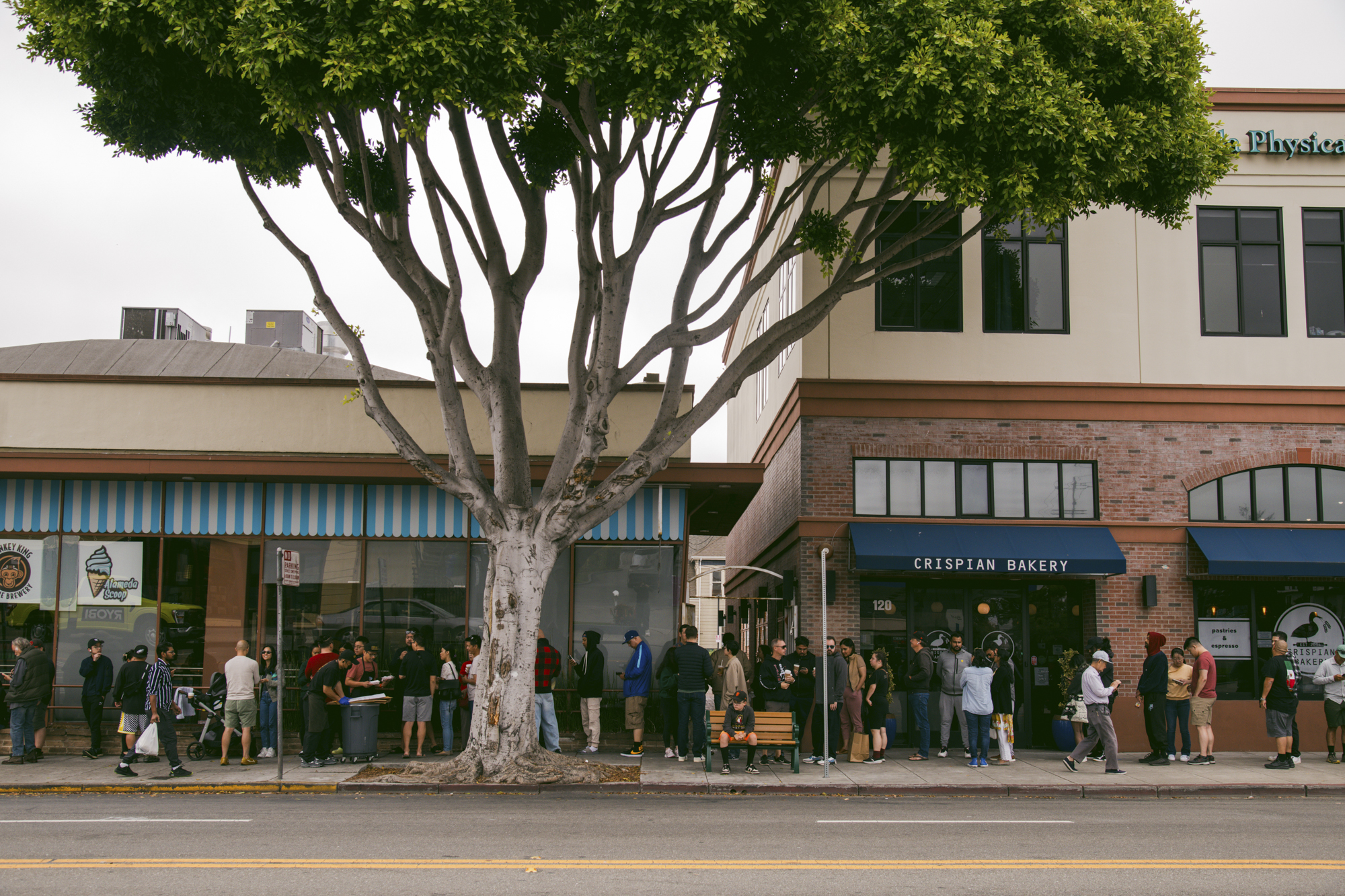
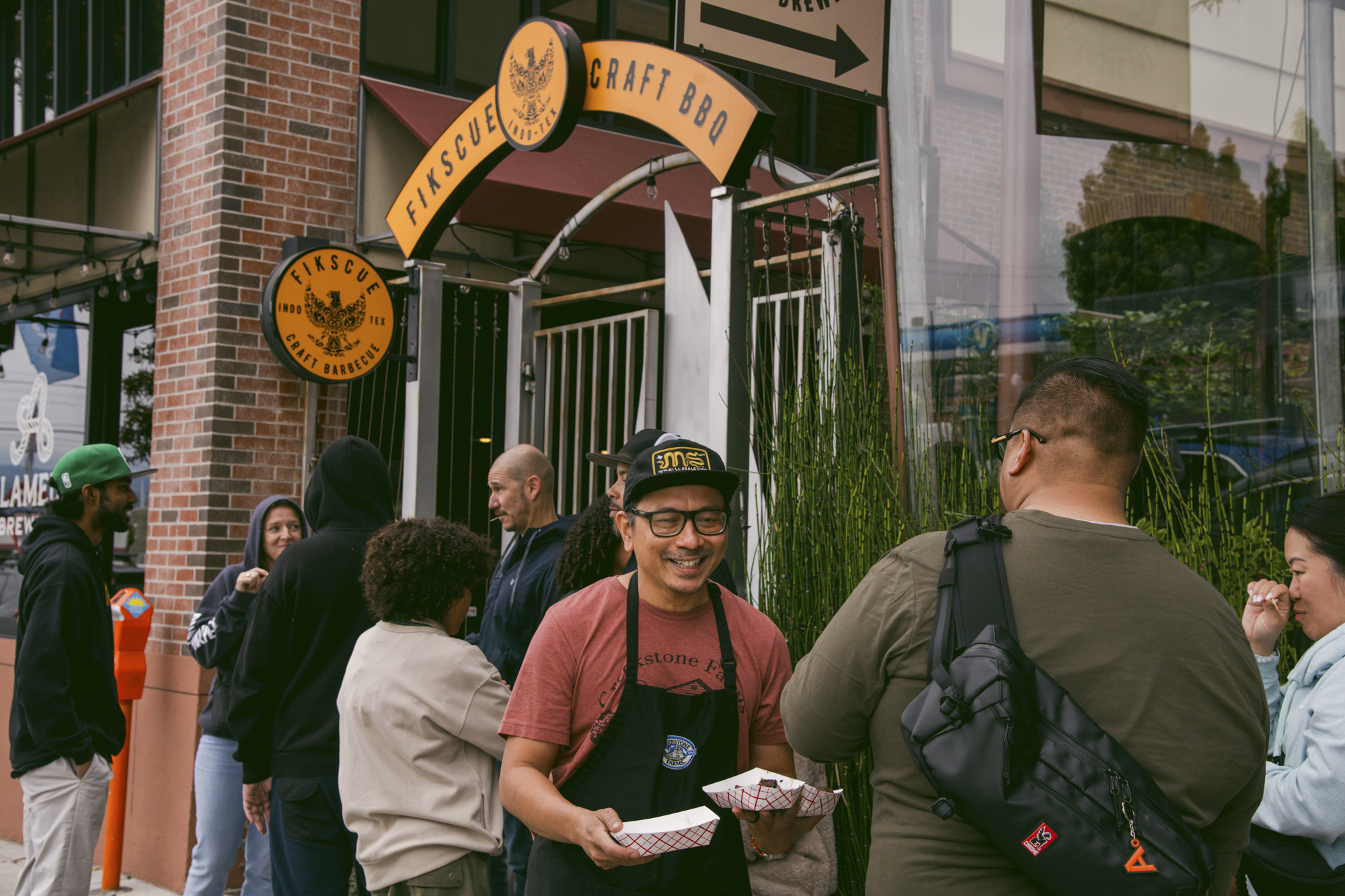
Meanwhile, Reka had made a study of incorporating leftover brisket into Indonesian food. She launched her own parallel Instagram pop-up, Gurih Table, selling traditional dishes alongside the couple’s earliest attempts at fusion, including a smoked brisket rendang plate she still considers her proudest creation. When the opportunity to open a full-on brick-and-mortar restaurant presented itself, it was an easy decision to combine the two concepts.
